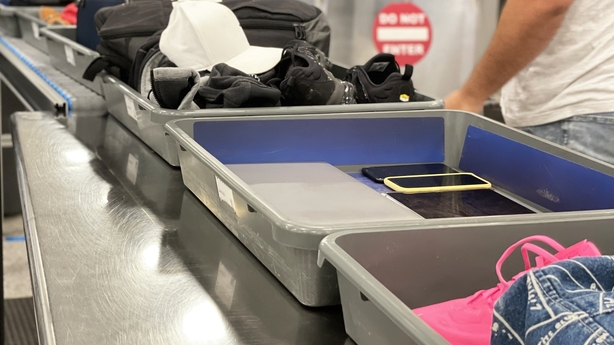The UK government has announced that it will significantly relax limits on taking liquids in carry-on luggage at airports from June 2024.
Currently, only containers of less than 100ml are allowed in the aircraft cabin at international airports, provided they are placed in clear bags at security checks.
Larger containers have to be checked in the hold, and electronic devices such as laptops must also be removed from bags.
But under a new bill to be presented to UK parliament today, limits for liquids will be raised to two litres.
Travellers will also no longer need to carry the containers in clear plastic bags, or remove tablets and laptops from hand luggage at checkpoints.
The rules, introduced in the early 2000s to prevent the use of liquid explosives on planes, have become a bind for travellers, regularly holding up queues.
The relaxation comes as a result of new technology being deployed at major airports in the UK over the next two years, the department said.
The "cutting-edge" machines will give security staff more detailed three-dimensional images of what people are carrying in their bags.

and laptops from hand luggage at checkpoints
Similar CT X-ray technology uses "highly advanced threat-detection algorithms" and is being rolled out at other airports around the world, said transport secretary Mark Harper.
"The tiny toiletry has become a staple of airport security checkpoints, but that's all set to change," he added.
"I'm streamlining cabin bag rules at airports while enhancing security.
"By 2024, major airports across the UK will have the latest security tech installed, reducing queueing times, improving the passenger experience, and most importantly detecting potential threats.
"Of course, this won't happen straight away - this is going to take two years to be fully implemented.
"Until then, passengers must continue following the existing rules and check before travelling."
The CT scanners create a 3D image of what is inside passengers' bags.
It is already being used at overseas airports such as Schiphol in Amsterdam and several in the US.
Christopher Snelling, policy director at industry body the Airport Operators Association, said: "This investment in next generation security by the UK's airport operators will provide a great step forward for UK air travel, matching the best in class around the world.
"It will make the journey through the UK's airports easier and air travel itself more pleasant."
Rules on liquids were tightened after a British man, Richard Reid, tried to blow up a transatlantic jet in December 2001 using homemade explosives hidden in his shoes.
The International Air Transport Association (IATA), which represents airlines, said it hoped the industry and passengers would be given "plenty of notice" of any changes.
It also called for it to be "coordinated globally".
Additional reporting PA

